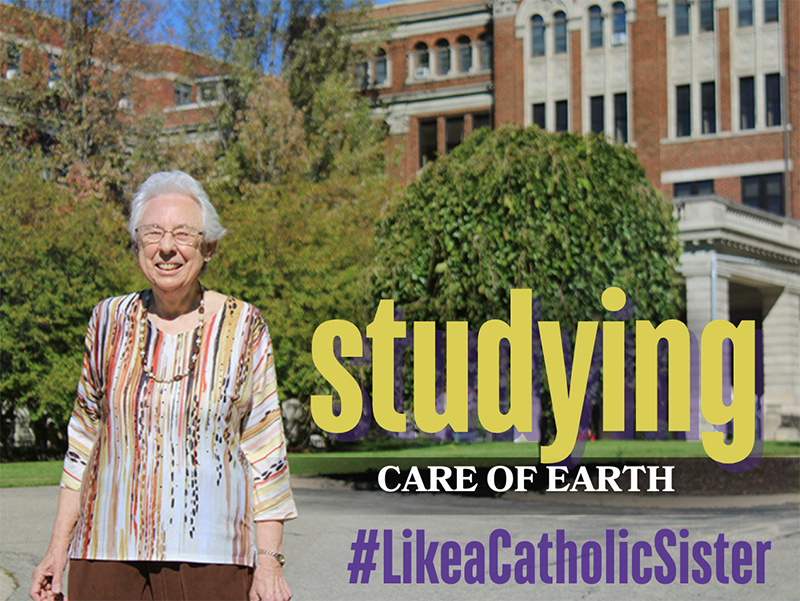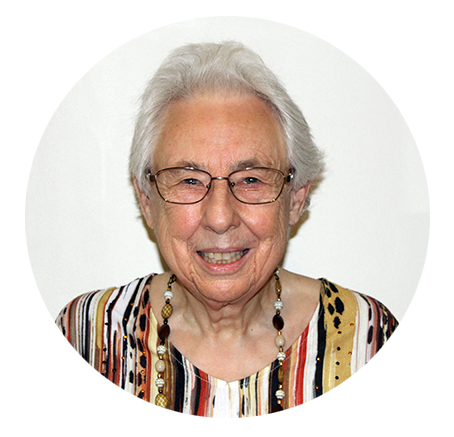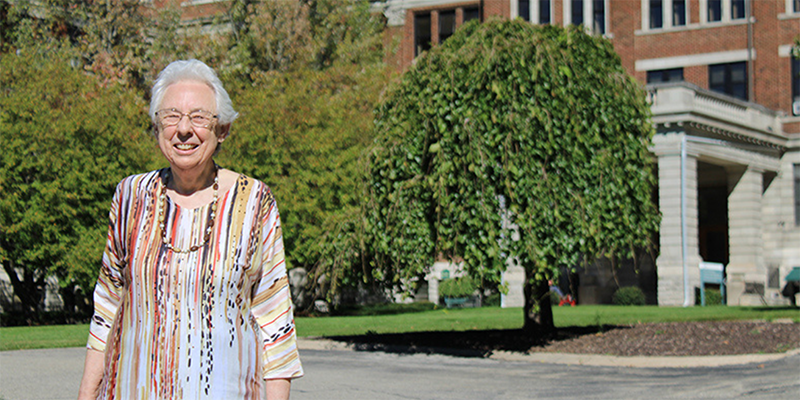
Sustainable purchasing is all about choosing to how and where you will spend your money. Developing a sustainable lifestyle is a lifetime process. Our individual actions might seem unimportant to us, but in the big picture with those of others they are important and powerful to bring about change for the good of all creation. We need the encouragement of each other to learn about and to commit to intentional shopping and purchasing.

by Mary Catherine Fodrocy, OP

A basic definition of sustainability:
Sustainability is the ability to meet the needs of the present without compromising the ability of future generations to meet their own needs. This means that the needs of all are met, not that some have an abundance and others lack what is necessary for a dignified life or even to survive. There can be a struggle between wants and needs.
The struggle between wants and needs.
Sustainable purchasing impacts the decisions about how we will spend our money. It is a position that looks to the good of people and the earth for both now and the future. It means developing a mindset that considers the impact of what we purchase on the environment and on our brothers and sisters in our one global human family.
Considering sustainable living?
Three areas of consideration for exploring and promoting sustainable living:
- Environmental which focuses on protecting natural resources and ecosystems, including air and water quality, biodiversity and climate change mitigation.
- Social which ensures equitable conditions for all, including human rights, social justice education, healthcare, and community well-being.
- Economical which achieves economic growth and stability that does not compromise the environment and social well-being, promotes responsible resource management, and long-term economic viability.
Identifying sustainably produced products
Various certifying organizations give us some indication of the sustainable production of an item by placing a mark on the item or its packaging. Seek out sustainability labels like Global Organic Textile Standard (GOTS), Fair Trade Certified, or B Corp. These show the business follows green practices. Such labels mean items use natural materials, have no harmful chemicals, and have plastic-free, eco-friendly packaging.
Questions to ask ourselves, in thought and prayer, about shopping practices:
- What are my priorities? What adjustments might need to be made to increase good stewardship of the earth which promotes the good of all our sisters and brothers in our one human family? This is an expression of love of God and love of neighbor.
- Do I consider what is good for people and the earth in what I buy, or do I look for the lowest price or best bargain?
- Am I willing to pay more for what I buy that promotes sustainability, even though I might have to buy less?
- Do I consider the positive or negative long-term impact of what I buy on people and the earth.
- What is enough?
The development of a sustainable lifestyle is a lifetime process. We need the encouragement of each other. Our individual actions might seem unimportant to us, but in the big picture with those of others they are important and powerful to bring about change for the good of all creation.
About the Author — Sister Mary Catherine Fodrocy, OP, leads an online study group committed to learning about and living a sustainable lifestyle. The ever-expanding group meets monthly and includes Dominican Sisters and Associates and friends seeking inspiration and community. She is also a Laudato Si’ Animator and has created a series of videos to help people learn about Laudato Si’ Goals and transformative vision of the initiative from Pope Francis.


